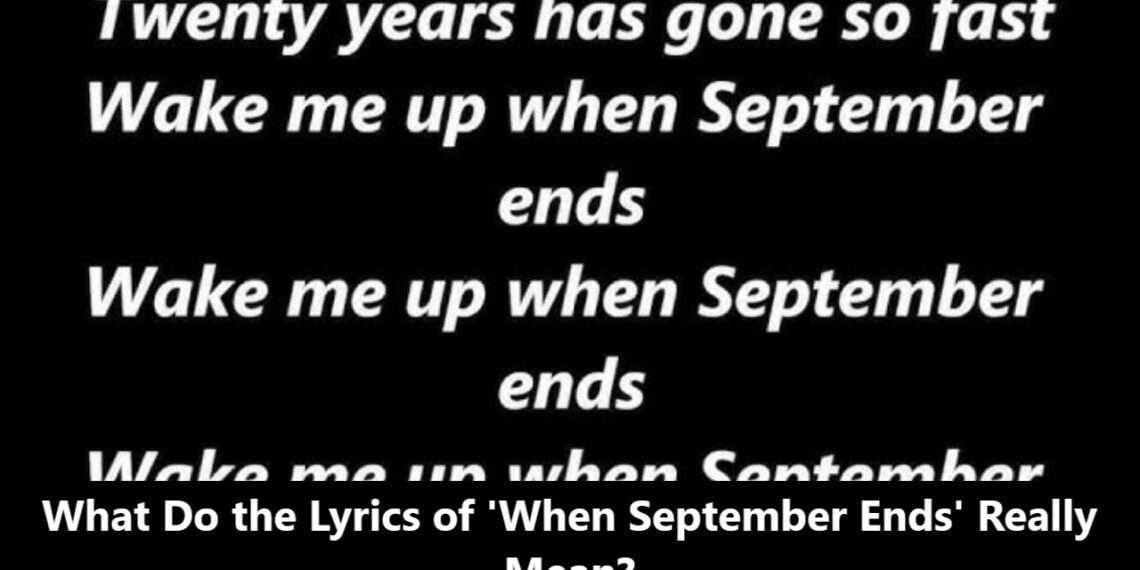A post shared by Green Day (@greenday) on Sep 27, 2017 at 12:27pm PDTOne of the most famous ballads of the band, “Wake Me Up When September Ends” has been immensely popular among Green Day fans all around the world. The song is NY-based with brilliance that was written by the lead vocalist Billie Joe Armstrong. But what do those words really mean? In this article, we will explore the history and meaning behind the lyrics of “When September Ends.”
The Song That Tells a Personal Story
Billie Joe Armstrong wrote the song in memory of his father, who died when Armstrong was ten. The lyrics express his grief, his longing for comfort, and the agony of such a loss. The lines “Wake me up when September ends” express Armstrong’s wish to skip the painful month of September, which brings memories of his father’s death.
Lines like “Here comes the rain again, falling from the stars” reflect the inevitability of sorrow, while the phrase “Drenched in my pain again, becoming who we are,” hints at how grief deforms us as individuals.
A Bigger Picture: Grief and Healing
Arguably, the most personal lyrics in the song hold deep meanings to Armstrong — yet its themes of repercussions and healing enable audiences to relate on a wider spectrum. The lyrics are often interpreted as a metaphor for resilience in the face of hardship, whether it be the loss of a loved one, a separation or even the trials of society.
The repetition of the phrase “Wake me up when September ends” emphasizes the same sentiment of escaping pain and wanting to wake up to better times. In this sense, September becomes symbolic of a time of mourning — or, of practicing soul yearning.
The Historical and Social Context
Interestingly, the song took on more meaning after it was released in 2004. The world was living through the aftermath of the 9/11 attacks and the Iraq War at that time. In both cases, the song was seen by fans and critics as a tribute to people who had lost loved ones in these tragic events. Although that interpretation wasn’t the one intended by Armstrong, it does illustrate the song’s versatility and emotional heft.
The Music Video: Expanding on what was in the Lyrics
Another dimension to the song’s meaning is added in the form of the music video. It’s about a young couple who are separated by war, resonating with themes of love, loss and sacrifice. [The video] is quite disconnected from the story of Armstrong as a person, which I think only adds to the song’s lasting power and ability to resonate with different listeners.
Why ‘When September Ends’ Still Resonates
“When September Ends” remains popular due to its raw, gripping honesty and relatability. The words capture a sense of grief and hope that’s universally understood. Whether you’ve lost someone close to you or just recognize the healing power of a song, the track gives space for reflection and healing.
Conclusion
“Wake Me Up When September Ends” stands as more than just a song — it’s an emotional journey. It reminds us of the need to grieve, heal, and move on through its poignant lyrics and heartfelt melodies. Billie Joe Armstrong’s own story just might have inspired the song, but its universal themes will touch hearts for generations to come.
If you were ever curious about the meaning behind the lyrics, now you know: “When September Ends” is a timeless anthem of love, loss and resilience.






